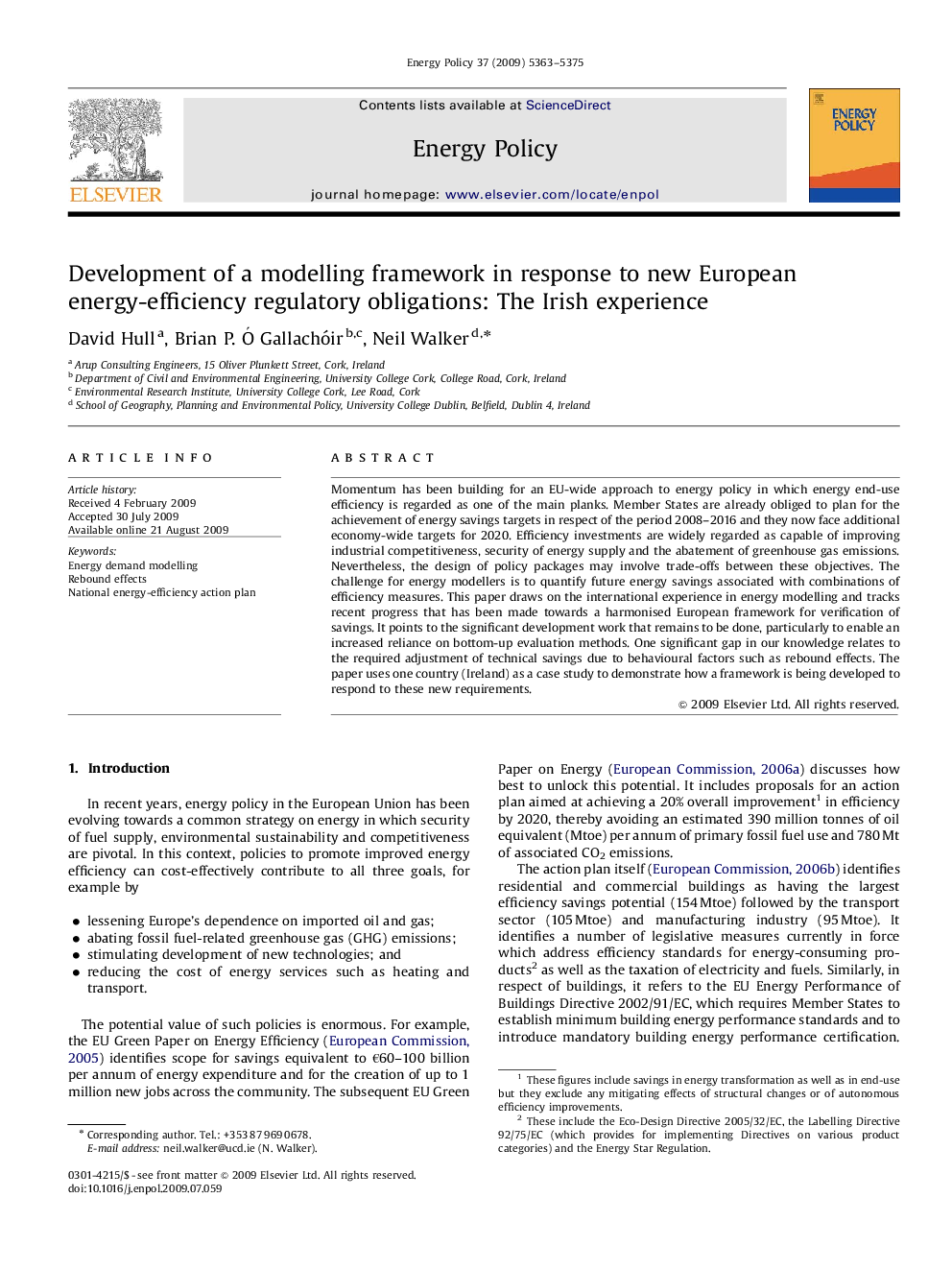| Article ID | Journal | Published Year | Pages | File Type |
|---|---|---|---|---|
| 995197 | Energy Policy | 2009 | 13 Pages |
Momentum has been building for an EU-wide approach to energy policy in which energy end-use efficiency is regarded as one of the main planks. Member States are already obliged to plan for the achievement of energy savings targets in respect of the period 2008–2016 and they now face additional economy-wide targets for 2020. Efficiency investments are widely regarded as capable of improving industrial competitiveness, security of energy supply and the abatement of greenhouse gas emissions. Nevertheless, the design of policy packages may involve trade-offs between these objectives. The challenge for energy modellers is to quantify future energy savings associated with combinations of efficiency measures. This paper draws on the international experience in energy modelling and tracks recent progress that has been made towards a harmonised European framework for verification of savings. It points to the significant development work that remains to be done, particularly to enable an increased reliance on bottom-up evaluation methods. One significant gap in our knowledge relates to the required adjustment of technical savings due to behavioural factors such as rebound effects. The paper uses one country (Ireland) as a case study to demonstrate how a framework is being developed to respond to these new requirements.
